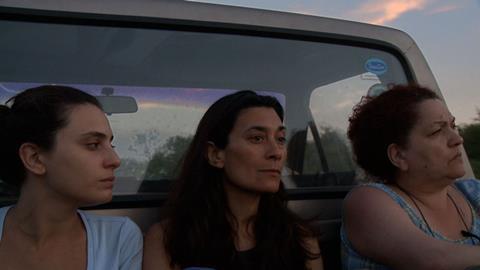Dir-scr: Ivan Fund and Santiago Loza. Argentina. 2010. 103mins

Three female medical workers travel to a distant part of Argentina to help the locals in this graceful, humane and unclassifiable drama. It’s a fragile, slow-paced and declaredly indie number, but the film’s intriguing blend of acted scenes and others apparently improvised around real patients in this impoverished (and never named) part of the country keep us going through the occasional longueur.
Certain scenes are compelling examples of the directors’ improvised docu-drama approach.
That said, it would take a courageous buyer to take a punt on this one. Though some of the scenes of the women’s’ healing misson are delightful, this doesn’t quite have the feel good factor of, say, Alamar - another recent Latin American title that blurs documentary and fiction. At home in Argentina, and possibly in other territories in the region, the social issues it deals with should find it a home with an ultra-arthouse public.
We first see Coca, Luchi and Noe in a bus station. They clearly have an appointment, but don’t seem to know each other - or at least stout, schoolteacher-like Coca has never met the other two before. Noe seems the most urbane and sexually confident of the three; Luchi is pretty but insecure. After a nightride by coach they arrive at a remote country crossroads to be met - eventually - by Raul, a local government employee who takes them to the abandoned hospital that is to be their accommodation.
For all we know at this point the film could be heading into horror territory; it’s only after twenty minutes, when we see them with their first patients, that we realise the three are community care workers, whose task it is to visit people in remote villages and check on their state of health and nutrition.
In a series of affecting, apparently un-acted scenes we meet Patricia, an mother with six kids; an unemployed man looking after two small children; a 78-year-old man with pneumonia and severe malnutrition who the women take to the hospital; and Roxana, a teenage girl who is pregnant for the second time, possibly by her father.
The extraordinary thing about these patients is that they are clearly real locals. Which gets us to wondering whether the three actresses - who are giving jabs, taking temperatures and asking all the right questions - are actually doctors playing actresses playing doctors.
The tension set up by this question carries through to the end, but it’s at its most taut and engaging in the medical visit scenes. In between, the three women hang out in the dingy ex-hospital, part of which is being demolished. They do each other’s hair, put on lipstick, and slowly bond. There seems to be some sort of one-way crackle in the air between Luchi and Noe. But these bridging scenes feel a little staged compared to the local/cast interactions.
The three women’s characters are hardly sketched in, and we are given no backstories. This has the effect of throwing us wonderingly into their present - especially in a final bar scene which is a compelling example of the directors’ improvised docu-drama approach. Camerawork is close-up and handheld, but there are moments of visual poetry in the morning and evening light that bring out the gloriously earthy colours of the rural setting.
Production companies: Morocha Films, Alta Definicion Argentina, Tres Sonido, Lorena Moriconi, Patricio Toscano
International sales: Latinofusion, (52) 33 3123 2738
Producers: Ivan Eibuszyc, Ivan Fund, Santiago Loza
Cinematography: Maria Laura Collasso
Production design: Adrian Suarez
Editor: Lorena Moriconi
Music: Ivan Fund, Lisandro Rodriguez
Main cast: Victoria Raposo, Eva Bianco, Adela Sanchez, Raul Lagger















![[L-R]: Amanda Villavieja, Laia Casanovas, Yasmina Praderas](https://d1nslcd7m2225b.cloudfront.net/Pictures/274x183/6/4/1/1471641_pxl_20251224_103354743_618426_crop.jpg)





